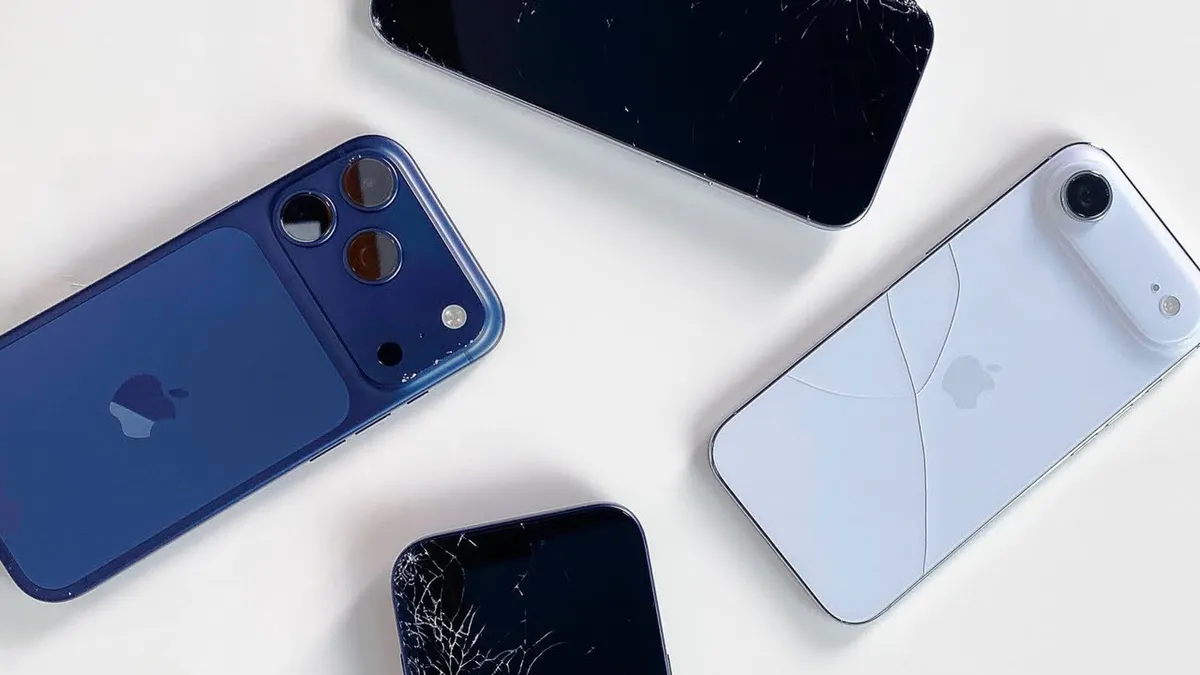
Apple's latest innovation, the iPhone Air, stands out with its sleek and lightweight design, featuring a robust titanium frame. Despite its slender profile of just 5.6mm, this model has demonstrated impressive resistance to bending. However, the specifics regarding its drop protection had remained relatively under wraps until recently, when device insurance provider Allstate Protection Plans unveiled the findings from its annual iPhone drop test.
The comprehensive drop test conducted by Allstate provides valuable insights into the durability of both the iPhone Air and the iPhone 17 Pro. Both devices utilize Ceramic Shield 2, an upgrade from traditional glass, for their front and back panels. Apple claims this material is more effective at resisting drops and scratches compared to its predecessors. While the iPhone Air boasts a titanium frame, the iPhone 17 Pro incorporates an aluminum frame, which is now designed with increased aluminum content and features a rectangular Ceramic Shield cutout at the back for MagSafe charging.
In terms of bend resistance, the results of the tests were promising. The iPhone Air endured a pressure of 190 pounds before exhibiting any bending, while the iPhone 17 Pro demonstrated slightly superior performance, withstanding 200 pounds. The iPhone 17 Pro Max excelled even further, bending only at a remarkable 240 pounds. For comparison, the infamous iPhone 6, known for its bendgate controversy, succumbed to bending at just 110 pounds.
When subjected to face-down drop tests from a height of six feet, both the iPhone Air and the iPhone 17 Pro experienced shattered displays. While both devices remained operational, the Ceramic Shield 2 material was noted to be too sharp for safe handling without protection. Conversely, during back-down drop tests, the iPhone 17 Pro sustained only minor scuffs, showcasing the effectiveness of its aluminum frame. The iPhone Air, however, did incur a crack in its rear panel upon impact but remained functional.
Last year’s iPhone 16 Pro Max was notably less durable, as its display shattered and rendered the device unusable after a similar six-foot face-down drop. In a back-down drop test, the rear glass of the iPhone 16 Pro Max shattered after just one drop, making it unsafe to use due to exposed broken glass. The improved durability of this year’s iPhone 17 Pro models extends to the iPhone Air, which, while not as drop-resistant as the 17 Pro, still performs better than its predecessor, the iPhone 16 Pro models.
Allstate previously conducted dunk tests; however, with the iPhone models now featuring excellent water resistance, these tests have become less relevant. Both the iPhone 17 Pro and iPhone Air maintain an IP68 rating, indicating they can withstand immersion in water up to 19 feet for a duration of 30 minutes. The consistent methodology used by Allstate in conducting drop tests allows for reliable comparisons, highlighting year-over-year enhancements in drop resistance.
In conclusion, Apple's claims regarding the improved durability of the iPhone Air and iPhone 17 Pro appear to hold true. However, it’s important to remember that Ceramic Shield 2, while strong, still possesses the potential to break. Factors such as the angle of the drop, height, and landing surface significantly influence the outcome of a fall. Therefore, investing in a protective case or considering a protection plan like AppleCare+ is highly advisable for users seeking to safeguard their devices.